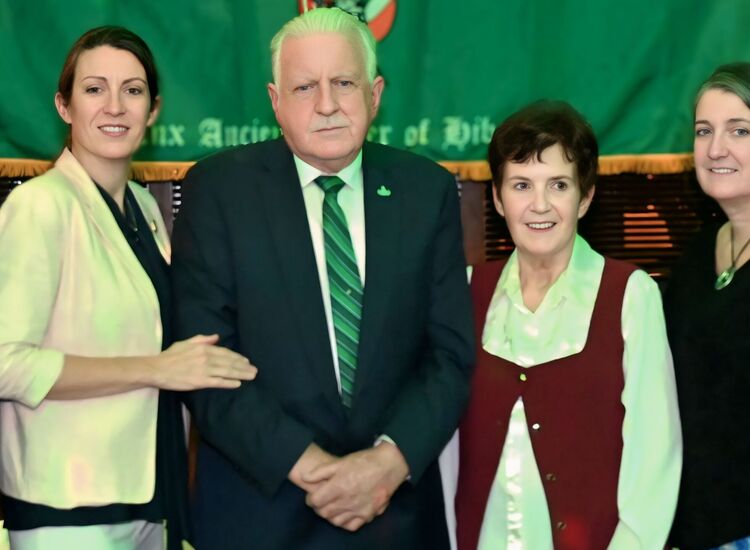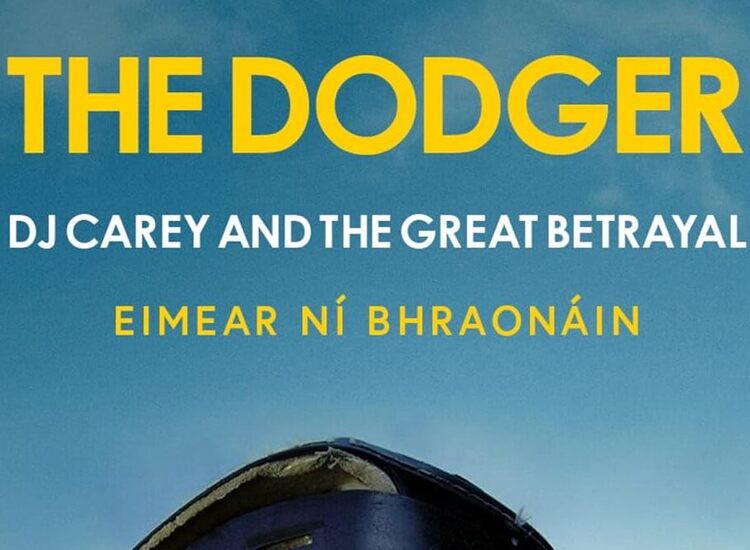Christopher Klein. PHOTO BY ERIN KLEIN
Page Turner / Edited by Peter McDermott
In his latest work of history, “When the Irish Invaded Canada,” Christopher Klein says that those who crossed the Atlantic were more radical that those who stayed home in Ireland or went elsewhere.
“They bore not only the scars of the Great Hunger but the disdain of the Know-Nothings. Plus, they enjoyed the protections of the U.S. Constitution, which gave them a haven from which they could operate beyond the reach of British laws. In America, the freedom to assemble, bear arms, and speak out against their enemy.”
Klein points to Young Irelander John Mitchel as the person who used the freedom of speech “more vigorously” than any other Irish revolutionary. The former editor of the United Irishman, after his release from confinement in Tasmania, founded the Citizen newspaper in New York in 1853. His targets included the British government, which he accused of genocide, Archbishop John Hughes of New York, whom he assailed because of the church’s hostility to Young Ireland’s militant nationalism, and the “hypocritical” Northern abolitionists.
In 1855, Klein continues, “Mitchel abruptly shuttered his newspaper and moved to Tennessee, where his pro-slavery views found a more welcoming audience.”
In Knoxville, he founded the Southern Citizen and became a prominent advocate for the South. Two of his sons would die in the Confederate cause. After the Civil War, the author of the iconic nationalist tract “Jail Journal” was back in prison thanks to Boss Tweed’s machine in New York. Local adherents of the Fenian movement, however, helped get Mitchel out.
By this time, that newer brand of militant Irish nationalism was uniting veterans from the blue and the gray under the banner of green and employing the other two freedoms cited by Klein – to assemble and to bear arms.
The revolutionaries’ plan, Klein told the Echo, was one of the “most fantastical missions in military history—to hold the British province of Canada hostage and ransom it for Ireland’s independence. It’s no blarney. And the self-proclaimed Irish Republican Army attacked Canada not just once, but five times between 1866 and 1871 in what are known as the Fenian Raids.”
Klein, a frequent contributor to History.com and the web site of the History Channel, added: “These Irish rebels may not have succeeded in their ultimate plan, but they achieved the first Irish military victory over the British since 1745, made the United States a key player in Anglo-Irish affairs, and forged a transatlantic framework that proved pivotal in providing the financial and military support that decades later led to Ireland’s eventual liberation from British rule.”
“Klein tells the stirring story of a poor but passionate group of American immigrants who fought not only for their new country,” fellow history writer Candice Millard says, "but for the one they had left behind. It’s astonishing that these men have been forgotten, but Klein brings them back to vibrant life."
Another, Eric Jay Dolin, says: “At turns heroic, bumbling, comic, idealistic, prideful, pigheaded, and star crossed, these men and their dramatic actions are an important, though all but forgotten, part of the American and Irish experience.”
And according to “Battle Cry of Freedom” author James M. McPherson, the Fenians’ example “helped inspire the movement that led to eventual success a half century later. Christopher Klein's fresh telling of this story is an important landmark in both Irish and American history.”

Christopher Klein
Date of birth: Oct. 29, 1972
Place of birth: Queens
Spouse: Erin
Children: Drew, 11, and Sydney, 9
Residence: Andover, Mass.
Published works: “When the Irish Invaded Canada: The Incredible True Story of the Civil War Veterans Who Fought for Ireland's Freedom,” “Strong Boy: The Life and Times of John L. Sullivan,” “The Die-Hard Sports Fan’s Guide to Boston,” “Discovering the Boston Harbor Islands.”
What is your writing routine? Are there ideal conditions?
I write in my home office surrounded by my bookcases. I generally write during the hours when my children are at school and then again after they have gone to bed. I’m more of a night owl than a morning person, so I like writing at night when I know there won’t be any interruptions from the outside world.
What advice do you have for aspiring writers?
Read as much as you can. It will spark new ideas and help you to understand how to structure stories and sentences. Try to write every day. It’s the same philosophy as going to the gym. Go a few days without flexing your writing muscles, and it’s tough to get going again. If you want to be published, steel yourself for rejection. Don’t get discouraged by it and persevere.
Name three books that are memorable in terms of your reading pleasure.
“Assassination Vacation” by Sarah Vowell, which delivered history with a side helping of snark, was such a fun read. Timothy Egan did a wonderful job of chronicling the revolutionary spirit of Thomas Francis Meagher in “The Immortal Irishman,” and Candice Millard’s “Hero of the Empire” was filled with such drama in chronicling Winston Churchill’s escape as a prisoner of war during the Boer War, an episode of his life I knew nothing about.
What book are you currently reading?
“Football for a Buck” by Jeff Pearlman, which chronicles the history of the United States Football League. As a child of the ‘80s, I loved the USFL, and this book is filled with some crazy anecdotes from the startup football league—even before Donald Trump shows up as an owner, signs Doug Flutie, and demands that all the other owners pay for it.
If you could meet one author, living or dead, who would it be?
Theodore Roosevelt. He’s not thought of as an author, but he wrote around three dozen books while living an incredible life. I have to know his time management secrets.
What is your favorite spot in Ireland?
The Beara Peninsula, which has all the rugged beauty of the Ring of Kerry without all the tour buses and crowds. It remains a blissfully wild place with castle ruins, waterfalls, winding mountain passes, and windswept coastlines.
You're Irish if...
You struggle to make a long story short.








